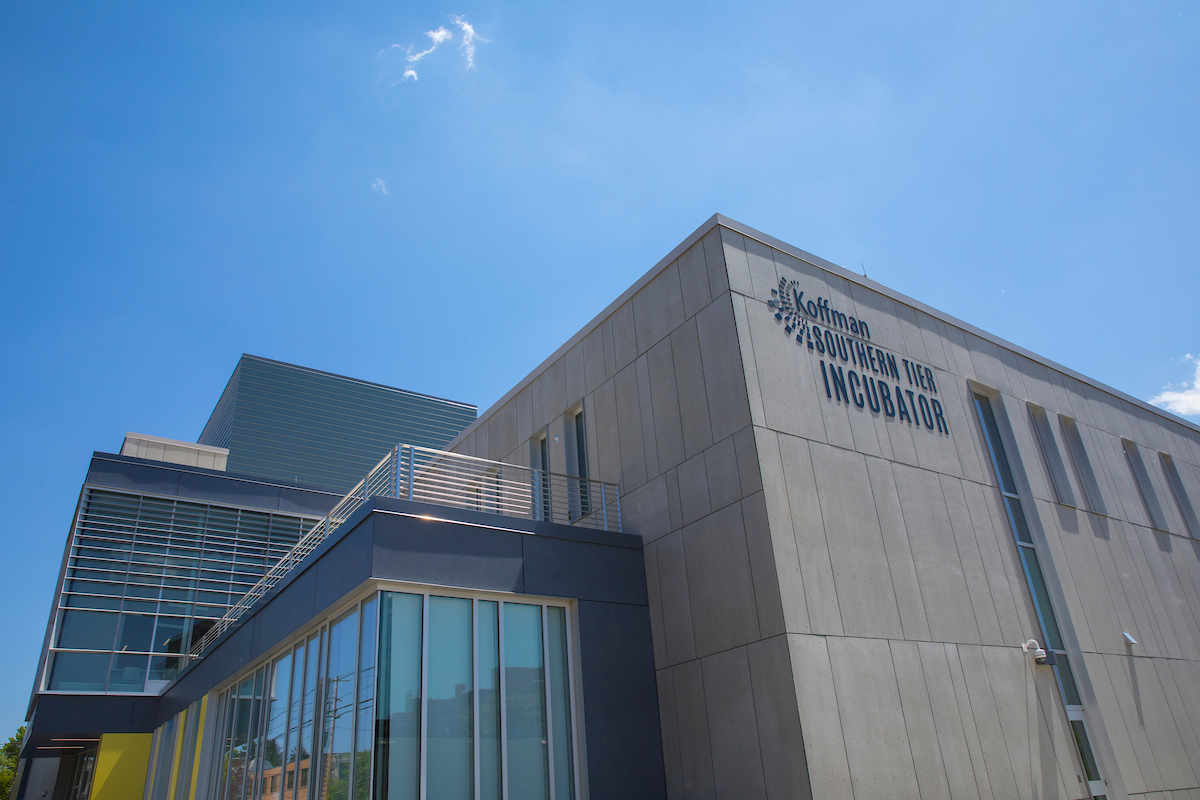Binghamton University joins newly formed consortium awarded $15 million
National Science Foundation Hub aims to foster innovation, entrepreneurship and local economic development

Binghamton University has joined the newly awarded National Science Foundation Innovation Corps (I-Corps™) Hub: Interior Northeast Region (IN I-Corps).
The National Science Foundation announced today that it has awarded $15 million over five years to establish and implement the Interior Northeast Region I-Corps Hub. The Interior Northeast region that stretches from New Hampshire to West Virginia is representative of large portions of the U.S. that are largely rural, economically underserved and working to restore economic vitality. IN I-Corps aims to expand the nation’s geography of innovation by creating a cohesive innovation ecosystem that delivers inclusive models of education and workforce training designed for and by innovators in rural regions and small cities.
“To be a part of this cohort of premier research institutions, whose dedication to innovation is so outstanding, is truly exciting.” said Per Stromhaug, associate vice president for innovation and economic development at Binghamton University. “The ecosystem that the Interior Northeast I-Corps Hub will support and expand is sure to create lasting effects for the entrepreneurs we will assist, as well as our region.”
Founded by the National Science Foundation in 2011, I-Corps programming nationwide empowers researchers to combine their technical and scientific knowledge with an entrepreneurial mindset to develop new technologies and startups that benefit society. The I-Corps curriculum addresses the knowledge gap between the skills needed to develop an innovative technology in a lab and the skills needed to bring that technology to market. With a core tenet of customer discovery, participants in I-Corps courses work to connect with potential customers and ensure the solutions they’re developing fill an existing market need.
Binghamton University will be joined by hub partner institutions Dartmouth College, Rochester Institute of Technology, SUNY Buffalo, Syracuse University, University of Pittsburgh, University of Rochester, University of Vermont, West Virginia University and Hub lead Cornell University. Each institution will be hosting regional I-Corps courses and contributing to programming and curriculum strategy.
The IN I-Corps Hub joins nine other I-Corps Hubs within the National Innovation Network, expanding the geographical reach of the network and promoting economic growth and science, technology, engineering and mathematics (STEM) talent development within rural communities and the small cities on their boundaries. The hub will regularly offer regional courses designed to support geographically-dispersed participants in learning the I-Corps method of customer discovery and applying it to real world opportunities, while still remaining connected to their home institutions and communities.
Binghamton University has been an active member of the National Innovation Network (NIN), with its Office of Entrepreneurship and Innovation Partnerships heading up the Innovation Binghamton I-Corps Site for over five years.
“I-Corps has been tremendously valuable to our research community,” said Olga Petrova, assistant director of Binghamton University’s Office of Entrepreneurship and Innovation Partnerships, site director and I-Corps instructor. “It is incredibly rewarding to watch our professors and students take their real-world learnings from the I-Corps training back to their labs and research programs, leading to increased grant funding, startup activity and development of technologies with amazing societal benefits.”
A mission-critical element of the IN I-Corps Hub’s approach to entrepreneurship is the creation and administration of diversity, equity, inclusion and accessibility initiatives. STEM researchers in underrepresented groups face heightened barriers to success, and creating equitable access to resources and talent development is crucial to ensuring the most innovative deep-tech developments are being discovered and amplified. Hub leadership and partners are working to actively create opportunities to support the development of STEM research talent who are women, veterans, people of color and individuals with disabilities. These initiatives will include collaborations with organizations like the National GEM Consortium’s Inclusion in Innovation Initiative (i4) and Rochester Institute of Technology’s National Technical Institute for the Deaf.
The IN I-Corps Hub will officially launch Jan. 1, 2023. Details are forthcoming for STEM researchers interested in learning about opportunities to participate in regional I-Corps courses at a Hub institution.
